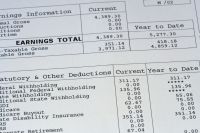“My employees prefer to skip an “official” rest period but do take short breaks to use the restroom or grab a drink. Since the time is paid, I don’t see a problem.”
Your HR Survival Tip

Just because you can’t find the problem doesn’t mean it’s not there. California’s wage and hour laws dictate the type, the length, and when an employee must receive meal and rest breaks. The rules are stringent and require you to pay more attention to what your employees are doing about these. First, the rules:
- Meal breaks — The break is unpaid, must last at least 30 minutes, and start within 4 hours 59 minutes from when the employee clocked in. The law states “within” 5 hours so don’t think that extra minute won’t count against you. You will be required to pay a one-hour premium pay to the employee if they begin their meal break late, skip it entirely, or don’t take the full 30 minutes. If the employee will be clocking out “within” 6 hours, no meal break or waiver is required.
- Rest breaks — The break is paid, must last at least 10 minutes, and is taken approximately in the middle of their morning and afternoon shifts. This break is required for any shift greater than 4 hours. If you refuse to let employees take the break or if you keep employees so busy they can’t or feel they can’t take a break and they are unable to take either rest break, you will be required to pay a one-hour premium to the employee. Reduce your risk by ensuring employees truly know and understand the rest breaks are available to them. Many employees don’t really understand an “official” rest break is just stretching that trip to the restroom or for a drink to one 10-minute break instead of two 5-minute trips.
- Piece-rate pay — The courts decided years ago the piece-rate amount paid does not include the pay for rest breaks. Therefore, you must pay for the appropriate amount of rest breaks on a separate line item on the wage statement (pay stub) as proof you paid for those breaks independent of their other pay. These are paid at an average rate of their earnings for the week or pay period.
- Meal break waivers — The waiver can’t be used just because it’s convenient. There are three primary reasons you can use a waiver: (1) welfare of others (such as children or the infirm); (2) security or safety (such as a security guard); or (3) the second meal break is being waived but the employee did take their first meal break. The waiver must be in writing, revocable, and signed by the employee. Even if you have a waiver, you must pay the premium due to the employee because of the missed meal break.
In a recent case, the CA Supreme Court decided the premiums are considered a wage and, therefore, must appear on a wage statement and be paid no later than the final paycheck when an employee leaves their employment. The good news is the Court stated the legal violation was in the failure to provide meal and rest periods, not the failure to provide the premium so waiting time penalties were eliminated. Make sure you are paying any premiums due to the employee every pay period and they show up as a separate line item on the wage statement. It is your responsibility to ensure your employees are following your policies and the law or it will be your responsibility to pay for your lack of attention.




Leave a Reply